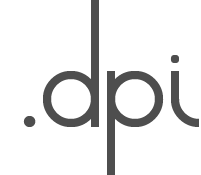Abstract
Social surveillance in social networking sites impacts agency, control over self-portrayal and the construction of online self-identity. Since online social surveillance intersects with gender, this article adopts a critical feminist framework to problematize social surveillance as it is mediated by culturally and socio-legally entrenched expectations of gender performance. We highlight some feminist implications of social surveillance and incompatible social expectations of privacy and self-disclosure for online gender expression. We also focus on how online social surveillance can increase women’s agency. Finally, we urge future feminist analyses in critical surveillance studies, advocating for greater critical thought about online agency and gender expression.
Surveillance scholars are increasingly beginning to consider the role of lateral or social surveillance in online social networking sites (SNSs)[1]. Social surveillance in SNSs strongly impacts the construction of online self-identity and relates to online agency and control over self-portrayals, since users of SNSs are more or less likely to disclose certain information based on who is able to see them online[2]. Although surveillance scholars have theorized ‘peer-to-peer surveillance’ using many different labels, including lateral surveillance[3], participatory surveillance[4], and social surveillance[5], we embrace the term ‘social surveillance’ since we are focusing specifically on SNSs.
To know more about social surveillance in SNSs, watch David Lyon’s talk at the TED Conference at Queen’s University:
Conspicuously absent from discourses on online social surveillance, much like discourses on surveillance in general, have been feminist analyses[6]. The absence of gendered analyses of online social surveillance is troubling, since interpersonal surveillance on SNSs directly intersects with gender; female social networking users engage in more surveillance of self and of others than male users[7]. The absence of gender-based analyses of online social surveillance also neglects the empowering aspects of the cyber realm[8]. This article begins our attempt to engage critical feminist frameworks in future studies of (online) surveillance, with the goal of prompting greater critical thought about how women experience agency in techno-social environments. We start to problematize social surveillance as being mediated by culturally and socio-legally entrenched expectations of gender performance, highlighting some of the feminist implications of incompatible social expectations for gender expression online.
Mediated Gender Expectations: Social Surveillance, Privacy and Self-Disclosure
Social surveillance invokes gendered cultural, media and socio-legal pressures regulating normative online gender performance. It informally governs online behaviour in a way that has real implications for areas of feminist critique, including online harassment, agency, identity, online self-expression, and media studies[9]. Early cyberfeminists imagined online spaces as equalizing gender relations and leveling economic disparity, but contrary to these expectations, online spaces often extend colonial, capitalist, male-dominated progress narratives that only permit a narrow performance of ‘girlhood’ online[10]. These narratives are also entrenched in media and policy discourses, which reflect several normative gendered identity narratives within which women are able to perform gender online in socially acceptable ways. These gendered identity narratives include stereotypes of women autonomously managing gendered online risk (such as invasions of privacy, reputation damage, or sexual harassment), portraying themselves as professional and ethically sensible, portraying themselves as family-oriented, or portraying themselves as popular. As our future work will explore, social surveillance in SNSs governs women’s performance of these identity narratives, where virtual citizens are held to the expectations of each through networks of peer support and disapproval[11].
Women’s online and offline performances of these identity narratives do not take place in isolation: roles played in online SNSs are extended and reproduced in offline settings, and vice-versa. These surveillance-regulated gender expectations are difficult and sometimes impossible to simultaneously negotiate, ultimately complicating women’s agential self-expression both online and offline. There are competing media, policy and social discourses outlining that women should maintain privacy in their online self-presentations yet simultaneously should publicly present online in a particular, gendered way – either as ‘responsible’ or as ‘popular’[12]. At the same time as self-presenting as private and responsible, it is common for women to gain social capital from publicly self-presenting as well liked and socially accepted, which involves posting photos and having many online friends[13] – in direct contrast to expectations of privacy and self-censorship. These incompatible expectations are enforced by social surveillance, where women who do not conform face negative judgment or even harassment from other users[14].
To know more about these conflictual pressures surrounding gender performance in social networking, watch Denise Krauss’s interviews with several social networking users who discuss the tension between online privacy and self-disclosure:
On one hand, media and policy discourses make women guard against gendered risk and engage in neoliberal self-protectionism [1] from gendered risk that is uncritically accepted as ‘natural’. These discourses often stress that women should be demure, modest and desexualized, ultimately enabling the media, the legal system and broader society to blame women for the risks they encounter online when they do not present as such[15].
On the other hand, media discourses also encourage women to gain social capital from popularity, celebrity and adherence to unattainable body image ideals[16]. Research indicates that self-objectification occurs in women online when they are exposed to objectifying, celebritized [2] [3] material[17]. Furthermore, body image ideals that had traditionally been portrayed within celebrity culture are now also portrayed within online peer networks with detrimental effects[18]. These portrayals can be interpreted as a result of expectations of publicity and popularity colliding with body image ideals – for example, in the case of ‘selfies’.
SNSs and Social Surveillance: Facilitating Agency and Empowerment?
Technological architectures differ from platform to platform; therefore, the way that women can be empowered and experience agency may vary across SNSs. SNSs can lift certain types of constraints and allow women to be active without having to adhere to certain unattainable expectations – for example, body image ideals – according to the specific content they require users to post. Females are less likely to deceptively self-present online than males[19]; therefore, while women face societal pressures to fall into a particular narrative, they are more likely to do so in a way that accurately reflects their offline identities. This can empower women in SNSs of a professional nature, as their self-presentations are supported by relevant experience and endorsements from other individuals in their networks (for example, on academia.edu or LinkedIn). Professional SNSs can partially reconcile incompatible identity performance expectations, enabling women simultaneously to self-present publicly and professionally, since public presentations on these platforms do not focus on popularity and unattainable body image ideals.
Social surveillance can potentially restrict agential online gender expression by causing women to censor their online disclosures, pressuring them to adhere to conflicting gender expectations. However, it can also potentially facilitate agency in other ways. Social surveillance online can allow for controlled self-portrayals to reach a broad group of online peers, perpetuate self-images that users have agentially constructed or posted, or provide users a platform to challenge normative standards of online gender expression. In this way, flouting privacy and having an audience that surveils online self-portrayals can be liberating, especially if it helps women gain other types of social capital[20]. An increased presence or interaction with others on SNSs can also foster relationships and help create a sort of digital intimacy[21]. With regard to professional SNSs, social surveillance can be similarly liberating. A particular identity that other users are performing – for example, a scholar – can allow users to focus their actions in order to portray that particular persona[22].

Zoë Erwin-Longstaff’s performance piece, Half Girl/Half Face, showcases the relationship between agency and social surveillance. A thought provoking editorial on this piece can be read at The Way I See It Theatre Blog
While SNSs have become a key component in discussing identity in the digital age, the inherent power relations that exist within the online environment, as offline, have yet to be fully deconstructed. SNSs can enable women to be visible or exposed to the extent to which they are comfortable, allowing them to control the visibility of their profiles from context to context. However, SNSs and social surveillance can also be disempowering for women to the extent that they entrench unreasonable and incompatible expectations of gender performativity. As Ball states in her discussion of the surveilled subject, “When one is exposed, one is exposed to something,”[23] and as with surveillance studies at large, in SNSs, one is exposed to surveillance. It is the type and purpose of this surveillance that is important[24], as well as its relation to broader narratives about gender performance – and that can indeed take on empowering or disempowering characteristics for women who present their identities online. It is imperative, then, that critical surveillance studies begin to consider feminist analyses as a tool to deconstruct the empowering and disempowering nuances to online gender expression.
Notes
[1] Alice Marwick, “The Public Domain: Social Surveillance in Everyday Life,” Surveillance and Society 9:4 (2012): 378-393; Daniel Trottier, “A Research Agenda for Social Media Surveillance,” Fast Capitalism, vol. 8, no 1, 2011, http://www.uta.edu/huma/agger/fastcapitalism/8_1/trottier8_1.html.
[2] Robert Tokunaga, “Social Networking Site or Surveillance Site? Understanding the use of Interpersonal Electronic Surveillance in Romantic Relationships,” Computers in Human Behavior, vol. 27, no 2, 2011, p. 705-713.
[3] Mark Andrejevic, “The Work of Watching One Another: Lateral Surveillance, Risk, and Governance,” Surveillance & Society, vol. 2, no 4, 2005, p. 479-497.
[4] Anders Albrechtslund, “Online Social Networking as Participatory Surveillance,” First Monday , vol. 13, no 3, 2008, http://www.uic.edu/htbin/cgiwrap/bin/ojs/index.php/fm/article/view/2142/1949 .
[5] Marwick, Ibid.
[6] Kirstie Ball, Nicola Green, Hille Koskela and David Phillips, “Surveillance Studies Needs Gender and Sexuality,” Surveillance & Society, vol. 6, no 4, 2009, p. 352-355.
[7] Tokunaga, Ibid.
[8] Ball and al., Ibid.
[9] Trevor Scott Milford, “Girls’ Online Agency: A Cyberfeminist Exploration”, MA thesis, University of Ottawa, 2013.
[10] Radhika Gajjala, “Internet Constructs of Identity and Ignorance: ‘Third-World’ Contexts and Cyberfeminism,” Works and Days, vol. 35/36, no 18, 2000, p. 117-137.
[11] Milford, Ibid., supra note 9.
[12] Idem.
[13] Idem.
[14] Milford, Ibid.
[15] Jane Bailey, “ ‘Sexualized Online Bullying’ Through an Equality Lens: Missed Opportunity in AB v. Bragg?” McGill Law Journal vol. 59, no 3, 2013, p. 1-24.
[16] Milford, Ibid.
[17] Dian de Vries and Jochen Peter, “Women on Display: The Effect of Portraying the Self Online and Women’s Self-Objectification,” Computers in Human Behavior, vol. 29, 2013, p. 1483-1489.
[18] Milford, Ibid.
[19] Rosanna Guadagno, Bradley Okdie and Sara Kruse, “Dating Deception: Gender, Online Dating and Exaggerated Self-Presentation,” Computers in Human Behavior, vol. 28, no 2, 2012, p. 642-647.
[20] Bailey, Ibid.
[21] Marwick, Ibid.
[22] Trottier, Ibid.
[23] Kirstie Ball, “EXPOSURE,” Information, Communication & Society vol. 12, no 5, 2009, p. 639-657 at p. 647.
[24] Idem.
Trevor Scott Milford is a doctoral candidate in Sociology at Carleton University (Ottawa). His research focuses on criminological feminist analyses of women’s agency and surveillance in social networking sites including Facebook. He looks at how systemically and structurally entrenched expectations for gender performativity can constrain women’s online agency and contribute to gendered experiences of online harassment, also considering whether current policy initiatives promote women’s agency. He works closely with The eGirls Project, a cyberfeminist research project at the University of Ottawa. In his spare time, he also works with Innocence Ottawa to achieve justice for Canadians who have been wrongfully convicted.
Ciara Bracken-Roche is a doctoral candidate in the Department of Sociology and the Surveillance Studies Centre, under the supervision of David Lyon at Queen’s University (Kingston). Bracken-Roche’s ongoing interest is in the relationship between the state, society and the individual with a strong theoretical background in international relations, critical security and surveillance studies, and critical feminism. Her dissertation research analyzes the contribution of unmanned aerial systems to the rapid expansion of security, policing and commercial surveillance following an intersectional approach to cumulative disadvantage. Bracken-Roche has led a research project on UAVs for the Office of the Privacy Commissioner of Canada and acts a member of her graduate student union’s social team in her spare time.
